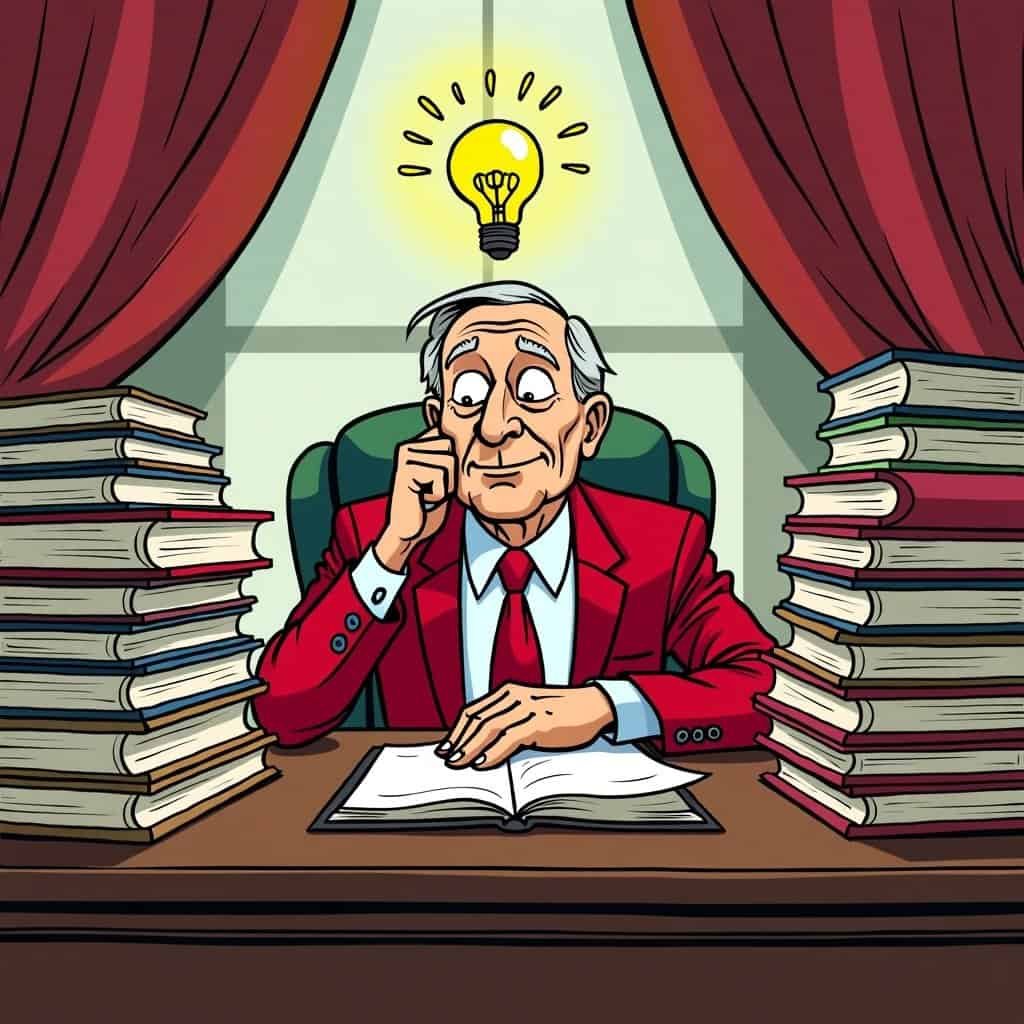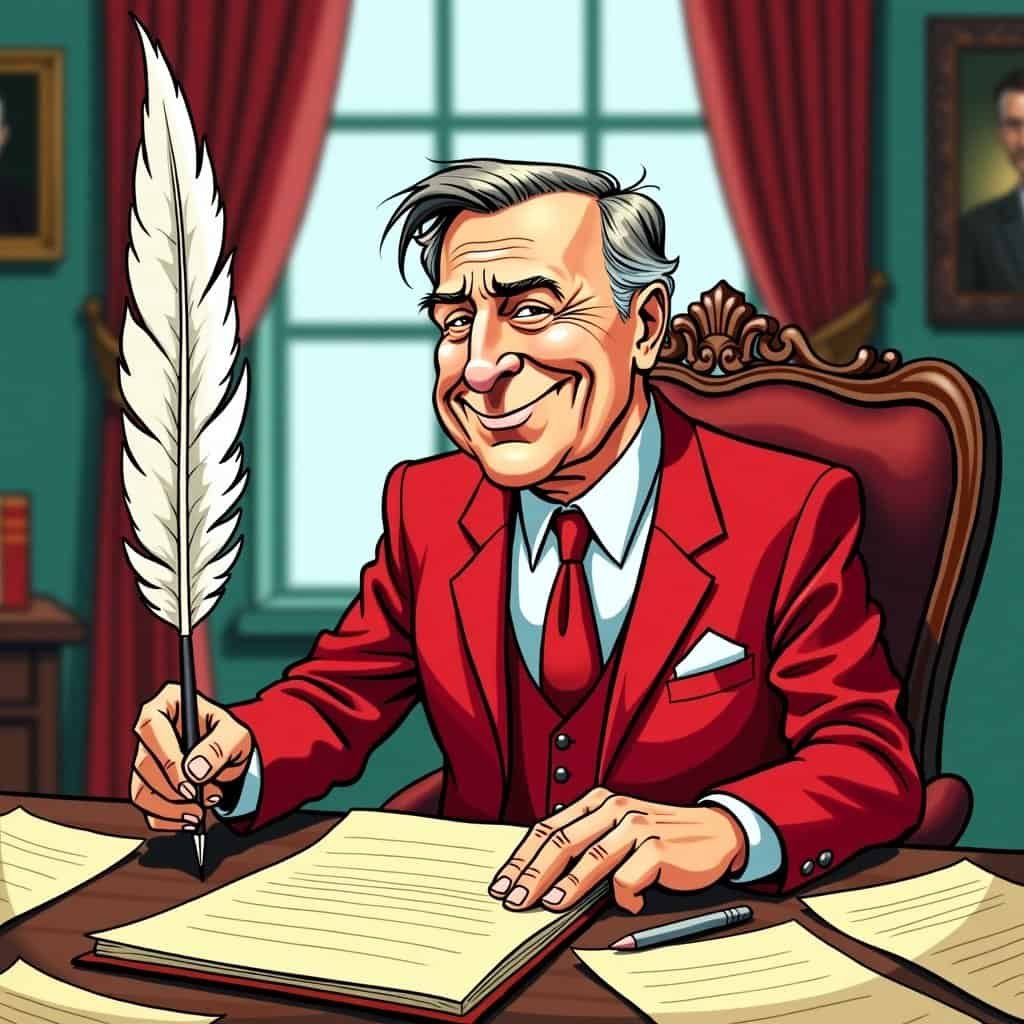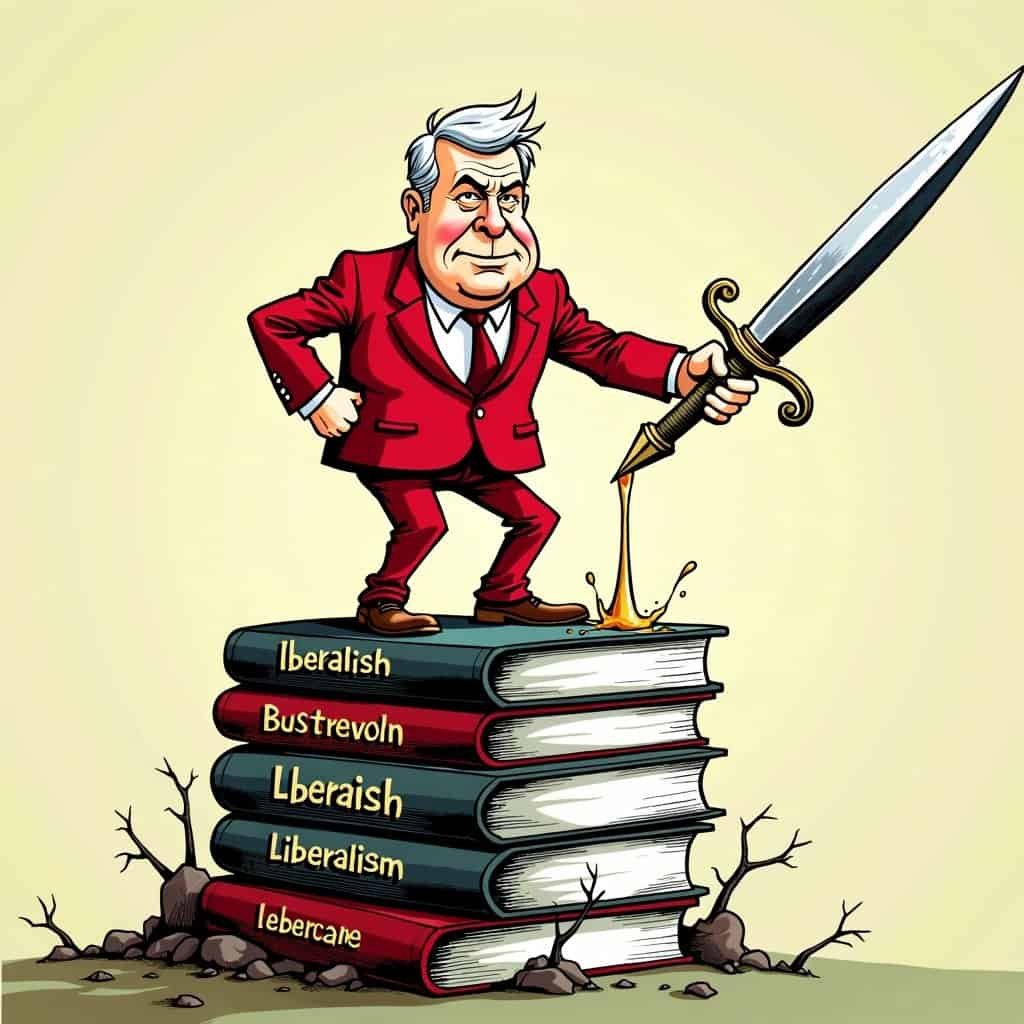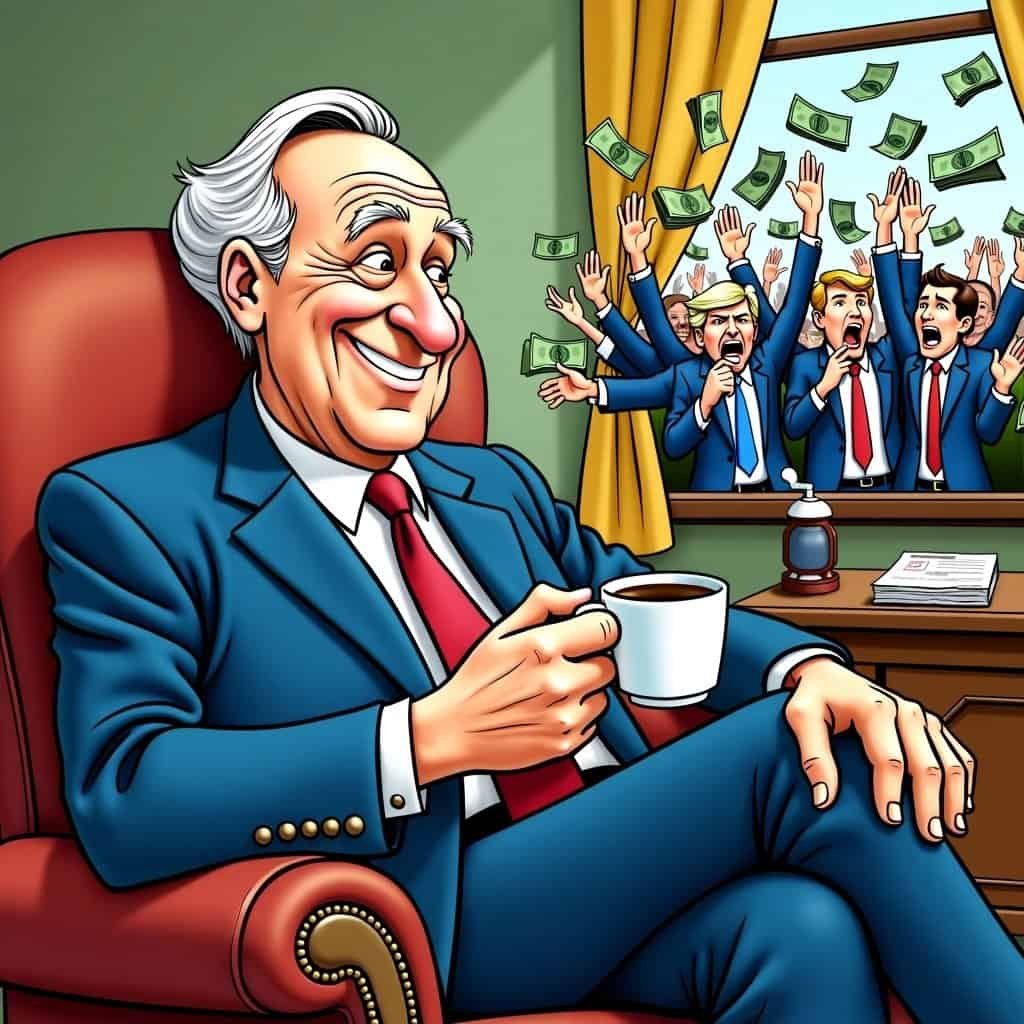Ah, William F. Buckley Jr., the conservative icon with the flair of a Shakespearean actor and the wit of Winston Churchill. When it came to environmental regulation, Buckley was a master of eloquent criticism, orchestrating a symphony of skepticism against the tide of government overreach.
Picture this: you’re sitting in your cozy living room, sipping on your morning coffee, when suddenly the EPA, driven by progressive zeal, knocks on your door. What do they want? To regulate the amount of steam from your brew, of course! Ridiculous? Perhaps. But in Buckley’s sharp view, these scenarios weren’t too far-fetched. Government intrusion, he argued, is like kudzu—once it starts spreading, it’s hard to stop.
So, why did Buckley oppose strict environmental regulations? Let’s explore a few reasons that ring as clear as the Liberty Bell.
Bureaucratic Overreach – The Kudzu of Governance
Buckley strongly believed that most environmental regulations were simply a way for the government to meddle in private business. He called out these regulations for what they were—an overreach that hampered American ingenuity and entrepreneurship. He wasn’t blind to environmental concerns, but he insisted on balance. When government regulations become more complicated than a Rubik’s Cube, it’s time to take a step back.
Economics – To Prosperity and Beyond
Buckley placed high value on economic growth and prosperity. He viewed excessive environmental regulations as a ball and chain on the ankle of the American economy. The focus should be on market-based solutions, he argued, where innovation and competition drive progress, not some bureaucratic decree.
The Impact of Excessive Regulations
- 📉 Economic slowdown
- 💼 Job losses
- ⚡ Rising energy prices
- 🏭 Struggling industries
Let’s face it: regulations that excessively target fossil fuels, for instance, can derail economic activities, cost jobs, and send energy prices through the roof. And who gets hit hardest? Middle America. That factory worker in Ohio doesn’t need Washington’s red tape; he needs a paycheck.
Property Rights – The Sacred Ground
Buckley also championed property rights, seeing them as sacred. He was determined to ensure that environmental regulations didn’t infringe upon an individual’s right to use their property as they saw fit. Does your local river need cleaning? Sure, but should that mean you can’t build a dock on your own land? Buckley would say, “No way!”
Conservative Values vs. Progressive Histrionics
From a conservative standpoint, the story writes itself: progressivism, with its focus on government intervention and control, often overlooks the importance of personal responsibility and liberty. Conservatives, however, emphasize small government and believe in the power of individuals and market forces to foster a healthier environment and economy.
When viewed through this lens, it’s clear why Buckley’s opposition to over-regulation strikes a chord with conservative values. His stance wasn’t an attack on environmentalism but a call for a more measured, practical approach.
The Moral of the Story – Keep It Simple, Keep It Free
In a nutshell, Buckley’s opposition to strict environmental regulation shows his belief in balancing environmental protection with economic freedom. Today’s conservatives can learn from Buckley: keep regulations fair and reasonable, trust in market solutions, and above all, protect individual rights.
So, next time an EPA regulation makes you raise an eyebrow, just remember Buckley’s words echo through the halls of American conservatism: “Ideologues march; conservatives sit down and think.” And isn’t that just what we need?
Table of Contents
- Bureaucratic Overreach – The Kudzu of Governance
- Economics – To Prosperity and Beyond
- Property Rights – The Sacred Ground
- Conservative Values vs. Progressive Histrionics
- The Moral of the Story – Keep It Simple, Keep It Free






